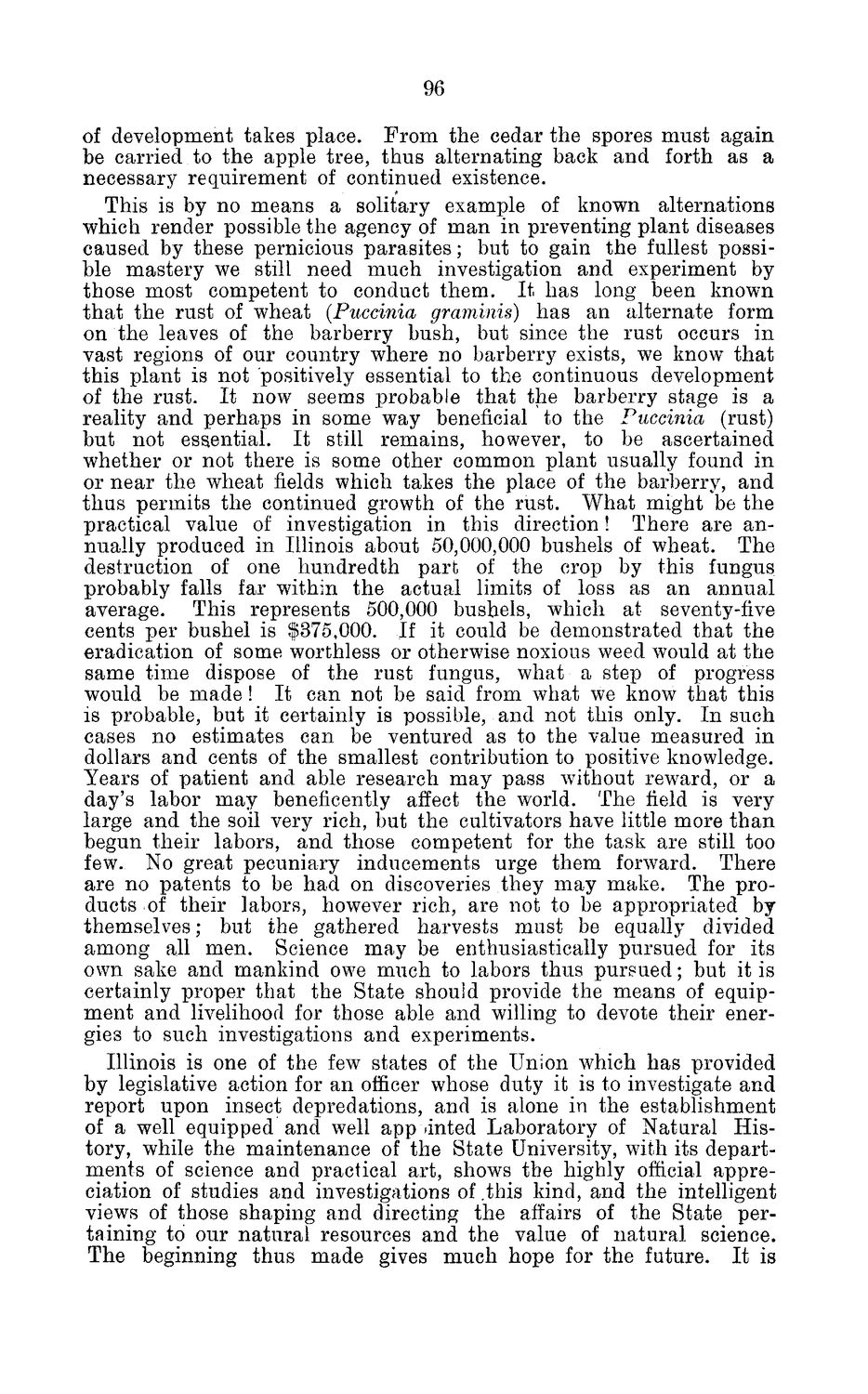| |
| |
Caption: Board of Trustees Minutes - 1884
This is a reduced-resolution page image for fast online browsing.

EXTRACTED TEXT FROM PAGE:
96 of development takes place. From the cedar the spores must again be carried to the apple tree, thus alternating back and forth as a necessary requirement of continued existence. This is by no means a solitary example of known alternations which render possible the agency of man in preventing plant diseases caused by these pernicious parasites; but to gain the fullest possible mastery we still need much investigation and experiment by those most competent to conduct them. It has long been known that the rust of wheat (Puccinia graminis) has an alternate form on the leaves of the barberry bush, but since the rust occurs in vast regions of our country where no barberry exists, we know that this plant is not positively essential to the continuous development of the rust. It now seems probable that the barberry stage is a reality and perhaps in some way beneficial to the Puccinia (rust) but not essential. It still remains, however, to be ascertained whether or not there is some other common plant usually found in or near the wheat fields which takes the place of the barberry, and thus permits the continued growth of the rust. What might be the practical value of investigation in this direction! There are annually produced in Illinois about 50,000,000 bushels of wheat. The destruction of one hundredth part of the crop by this fungus probably falls far within the actual limits of loss as an annual average. This represents 500,000 bushels, which at seventy-five cents per bushel is $375,000. If it could be demonstrated that the eradication of some worthless or otherwise noxious weed would at the same time dispose of the rust fungus, what a step of progress would be made! It can not be said from what we know that this is probable, but it certainly is possible, and not this only. In such cases no estimates can be ventured as to the value measured in dollars and cents of the smallest contribution to positive knowledge. Years of patient and able research may pass without reward, or a day's labor may beneficently affect the world. The field is very large and the soil very rich, but the cultivators have little more than begun their labors, and those competent for the task are still too few. No great pecuniary inducements urge them forward. There are no patents to be had on discoveries they may make. The products of their labors, however rich, are not to be appropriated by themselves; but the gathered harvests must be equally divided among all men. Science may be enthusiastically pursued for its own sake and mankind owe much to labors thus pursued; but it is certainly proper that the State should provide the means of equipment and livelihood for those able and willing to devote their energies to such investigations and experiments. Illinois is one of the few states of the Union which has provided by legislative action for an officer whose duty it is to investigate and report upon insect depredations, and is alone in the establishment of a well equipped and well app anted Laboratory of Natural History, while the maintenance of the State University, with its departments of science and practical art, shows the highly official appreciation of studies and investigations of .this kind, and the intelligent views of those shaping and directing the affairs of the State pertaining to our natural resources and the value of natural science. The beginning thus made gives much hope for the future. It is
| |